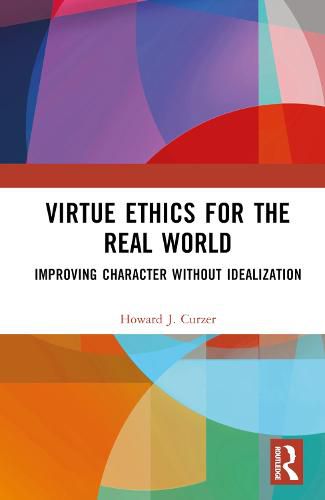Readings Newsletter
Become a Readings Member to make your shopping experience even easier.
Sign in or sign up for free!
You’re not far away from qualifying for FREE standard shipping within Australia
You’ve qualified for FREE standard shipping within Australia
The cart is loading…






In Virtue Ethics for the Real World: Improving Character without Idealization, Howard J. Curzer argues that character ideals seduce virtue ethicists into counterintuitive claims, mislead and psychologically harm people seeking to improve their characters, and sometimes become tools for exploitation. Curzer offers a theory of Aristotelian virtue ethics that eschews idealization and that harmonizes with common sense. To explain the many dilemmas of ordinary life, he allows that different virtues sometimes enjoin incompatible actions, and even enjoin actions that conflict with duty. Curzer defends the doctrine of the mean, arguing that idealized traits such as unilateral forgiveness, universal civility, unconditional commitments, and unlimited generosity are not virtues. He shows that the reciprocity of virtues doctrine depends upon idealization, and rejects it.
When undergirding his theory, Curzer wears several hats. He is a eudaimonist when grounding virtue, a constructivist when grounding value, and a perspectivist (a la Nietzsche) when grounding virtuous action.
How can people improve without aiming at an ideal? Curzer offers an individualized approach to character improvement modelled on contemporary medicine. First, diagnose each person’s character flaws. Then tailor treatment plans to each flaw. An important tool is a fine-grained table of the components of character, their failure modes, and corresponding therapies. Curzer provides the beginnings of such a table.
$9.00 standard shipping within Australia
FREE standard shipping within Australia for orders over $100.00
Express & International shipping calculated at checkout
In Virtue Ethics for the Real World: Improving Character without Idealization, Howard J. Curzer argues that character ideals seduce virtue ethicists into counterintuitive claims, mislead and psychologically harm people seeking to improve their characters, and sometimes become tools for exploitation. Curzer offers a theory of Aristotelian virtue ethics that eschews idealization and that harmonizes with common sense. To explain the many dilemmas of ordinary life, he allows that different virtues sometimes enjoin incompatible actions, and even enjoin actions that conflict with duty. Curzer defends the doctrine of the mean, arguing that idealized traits such as unilateral forgiveness, universal civility, unconditional commitments, and unlimited generosity are not virtues. He shows that the reciprocity of virtues doctrine depends upon idealization, and rejects it.
When undergirding his theory, Curzer wears several hats. He is a eudaimonist when grounding virtue, a constructivist when grounding value, and a perspectivist (a la Nietzsche) when grounding virtuous action.
How can people improve without aiming at an ideal? Curzer offers an individualized approach to character improvement modelled on contemporary medicine. First, diagnose each person’s character flaws. Then tailor treatment plans to each flaw. An important tool is a fine-grained table of the components of character, their failure modes, and corresponding therapies. Curzer provides the beginnings of such a table.